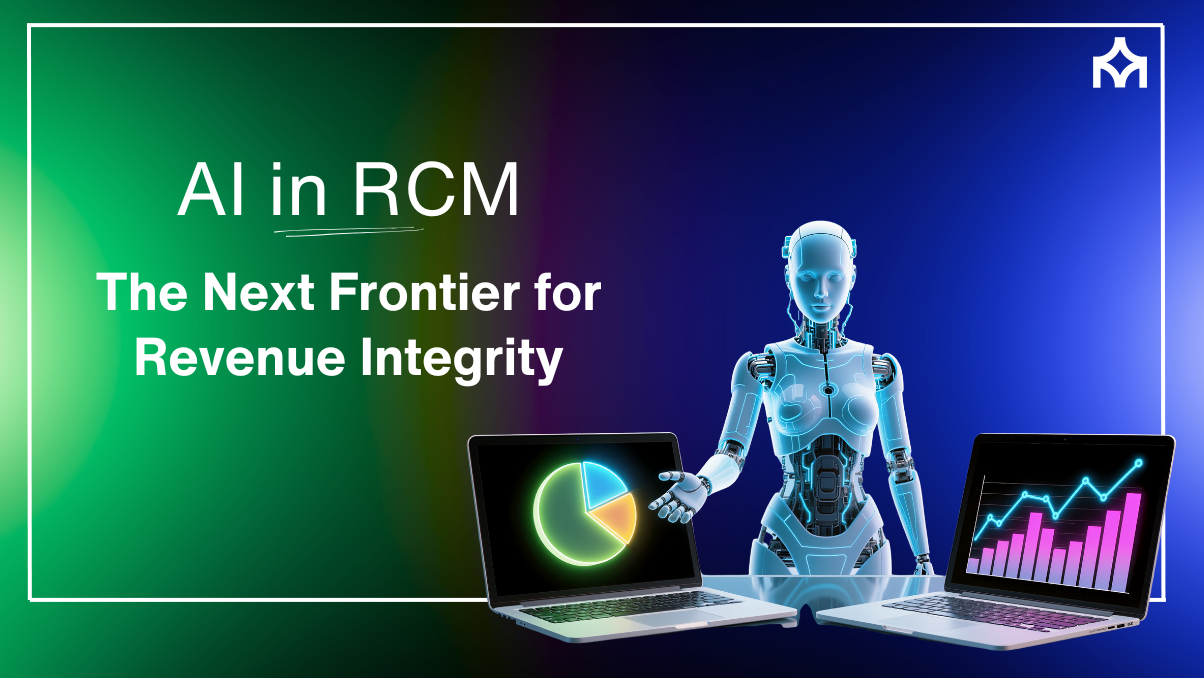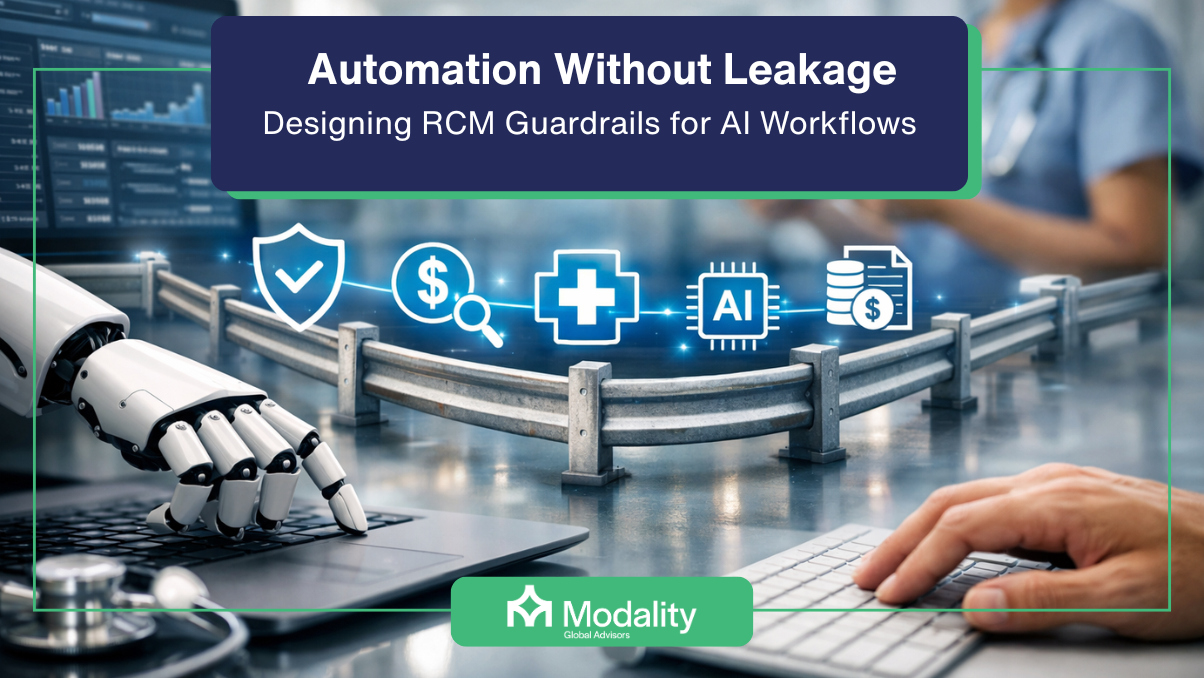AI in RCM: The Next Frontier for Revenue Integrity
AI in RCM: The Next Frontier for Revenue Integrity
In today’s challenging U.S. healthcare landscape, hospitals and health systems are under unprecedented pressure to maintain financial stability. Shrinking reimbursement rates, escalating labor costs, and increasingly complex payer requirements have made Revenue Integrity a mission-critical priority.
According to the American Hospital Association (2024), U.S. hospitals lose an estimated $21 billion annually due to denied claims and revenue leakage. With margins tightening across the board, Artificial Intelligence (AI) is emerging as the next frontier for transforming Revenue Cycle Management (RCM) from reactive claim correction to predictive revenue protection.
Why AI Is Transforming the RCM Landscape
For decades, RCM teams have depended on manual processes for coding, claim validation, denial tracking, and payment reconciliation. These traditional workflows are time-intensive and prone to human error. AI fundamentally changes this model.
AI-powered RCM tools use predictive analytics to flag potential claim errors before submission, analyze payer behavior, and identify trends that can lead to denials or underpayments. Hospitals using AI-driven denial prediction tools have reported up to a 35% reduction in claim denials and a 25% improvement in days in A/R (Healthcare Financial Management Association, 2024).
By learning from historical data, AI can detect patterns in payer rejections and adjust claim workflows automatically preventing issues that previously required weeks of back-and-forth follow-up. The result is faster reimbursements, improved cash flow, and stronger revenue integrity across the enterprise.
Automation + Analytics: The Core of Intelligent RCM
The integration of AI, Robotic Process Automation (RPA), and predictive analytics is redefining the way health systems manage revenue.
For example, RPA bots can automate eligibility checks, prior authorizations, and claim submissions eliminating human errors that account for nearly 30% of all denials (Becker’s Hospital Review, 2024). Meanwhile, predictive analytics tools can forecast payer response times and payment trends, allowing finance teams to better manage revenue cycles and cash flow forecasts.
Together, AI and automation enable a “Revenue Integrity Intelligence” model, one that continuously monitors data, identifies risk areas, and optimizes every stage of the revenue cycle for precision and efficiency.
Enhancing Workforce Efficiency, Not Replacing It
AI isn’t here to replace RCM specialists, it's here to empower them. By offloading repetitive, rule-based tasks, AI gives RCM teams the time and tools to focus on higher-value activities such as payer relationship management, compliance oversight, and performance analytics.
According to Deloitte’s 2024 Healthcare Outlook, 67% of U.S. healthcare executives plan to increase investments in AI and automation over the next two years, citing gains in workforce productivity and improved revenue outcomes as key drivers. This human-AI collaboration ensures both operational efficiency and accuracy in a highly regulated financial environment.
The Future of Revenue Integrity
The future of RCM lies in predictive prevention rather than reactive correction. By embedding AI-driven intelligence into every step of the revenue cycle, hospitals can proactively identify issues, reduce denials, and accelerate cash flow.
As payer rules evolve and margins tighten, AI will be the differentiator between organizations that simply process claims and those that achieve sustainable, data-driven revenue integrity.
Sources:
- American Hospital Association (2024). Hospital Financial Loss Report.
- Healthcare Financial Management Association (HFMA, 2024). Revenue Cycle Performance Trends.
- Becker’s Hospital Review (2024). “Top Denial Causes and How AI is Addressing Them.”
- Deloitte (2024). “AI and Automation in Healthcare: 2024 Outlook.”






